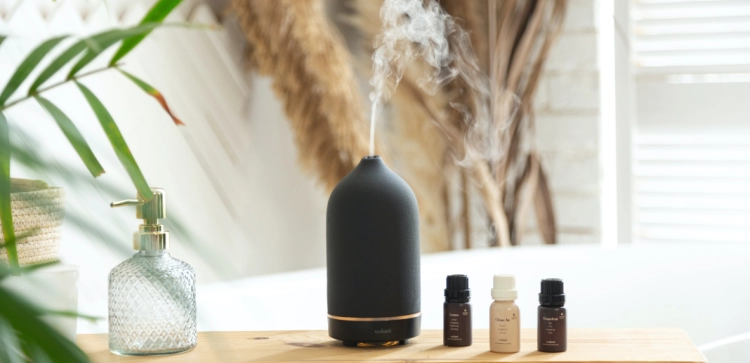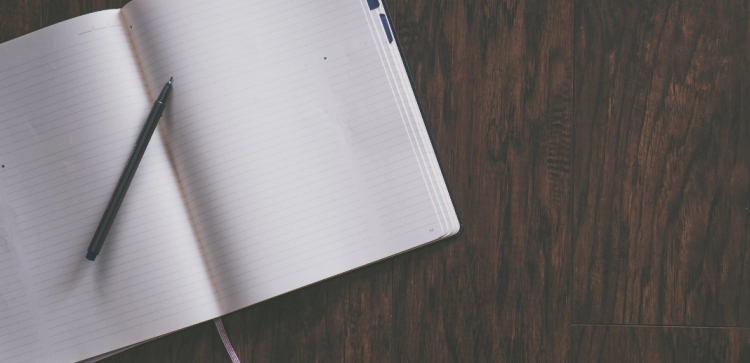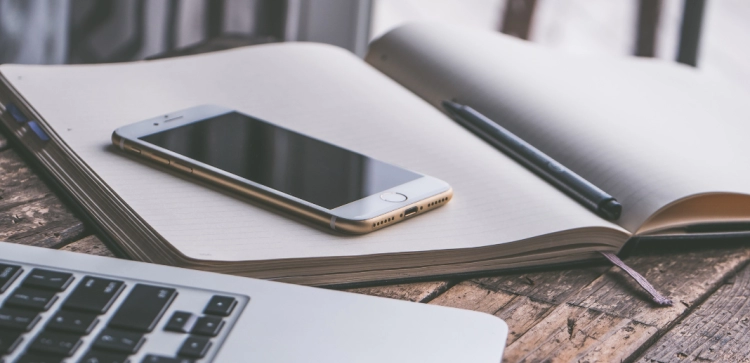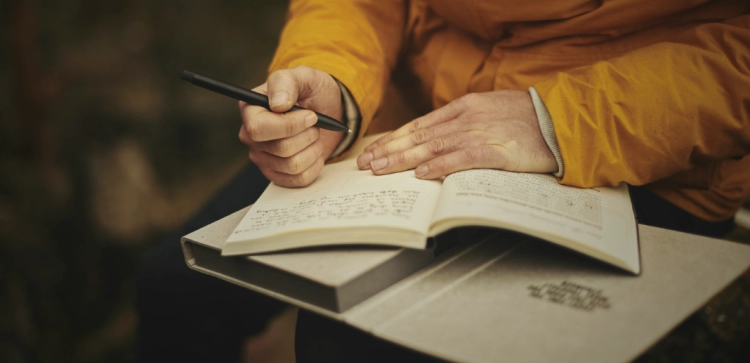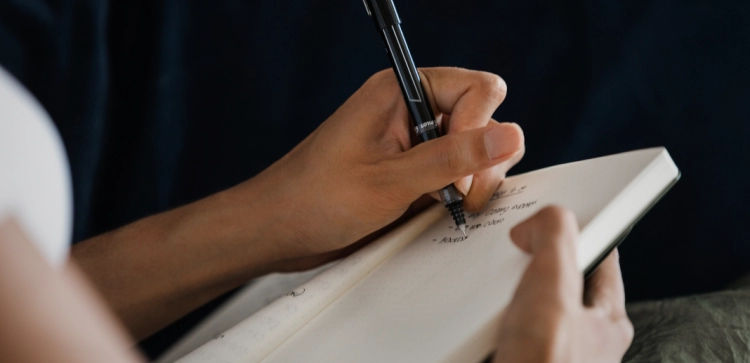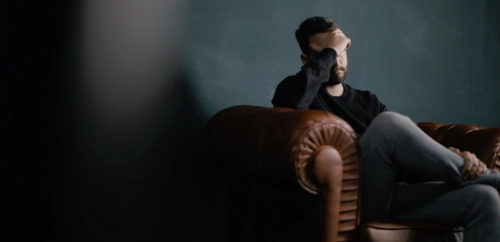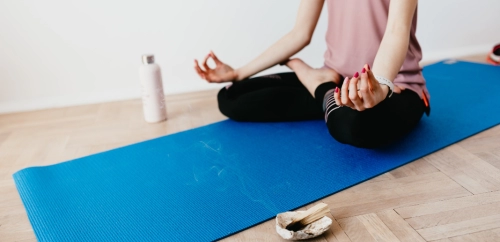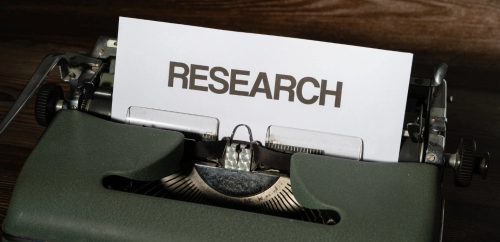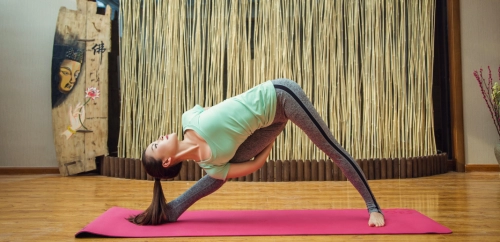




Divuni Mindfulness
If the fridge is under 8-10 years old, a repair is usually worth it, especially if the issue is minor like a faulty thermostat or compressor relay. For older units, consider the repair cost—if it’s over half the price of a new fridge, replacement might be the better option. An appliance repair professional can diagnose the issue and help you decide.
They are so angry, so violent, so aggressive. You meet people in the streets, driving, walking, and they are so angry, so ready for violence.
I always try to tell myself that there is a reason for this, that I dont know what they have been through or what kind of day they are having, that maybe they are just so unhappy. But, then i think, why? Why are so many people so unhappy?
Are all of these people that I encounter so unhappy that it causes them to act like this?
Things can be so simple, so easy, so much less stressful, why do we make it worse?
I would actually love to live without it. At least for certain periods of time.
It's actually less about the internet, and more about technology, and what it has done to society.
At the dinner table - everyone is on their phone.
After dinner - everyone is watching TV or on their phone.
Long drives where you, the driver, would like someone to talk to - others in the car are on their phone.
You try to talk to someone while they are on their phone - good luck! They won't even hear you speaking!
This is something that really makes me want to take more than a few steps back and away from people, and society. Seeing how everyone is so addicted to their phones and social media is just awful for me.
I also have times where I am on my phone, maybe I'll play a game, talk to friends, read articles, but it doesn't consume me. I am not addicted to it. I don't spend hours on it. If someone talks to me, I put it down.
When I am with a partner, and they are on their phone and I mention something about it, only then do they put it down and then say "ok, what do we talk about?".
Verbal communication has been demolished by phones. Couples have difficult time having proper conversations with each other over lunch, or at any time.
I can go on about this, but the answer to the question is yes, gladly.
Sitting on a block, pillow, or anything slightly elevated makes it easier to balance while sitting cross legged with a straight back, and makes it a little bit more comfortable.
I usually sit on a yoga block, which I find for me is the perfect amount of elevation. It allows me to sit comfortably with a straight back and with much less effort. This allows me to actually sit and meditate for longer.
Yes, meditation can be a helpful tool for managing ADHD symptoms. By practicing mindfulness meditation, individuals with ADHD can learn to develop greater awareness of their thoughts, emotions, and bodily sensations, and cultivate better focus, attention, and self-regulation skills.
Meditation can help to train the brain to become less distracted and more focused. By practicing meditation regularly, individuals with ADHD can improve their ability to concentrate, control impulsivity, and manage their emotions.
Research has shown that regular meditation practice can lead to improvements in working memory, cognitive control, and overall executive function in individuals with ADHD. Meditation can also help to reduce stress and anxiety, which are common co-occurring conditions in people with ADHD.
It's important to note that while meditation can be helpful for managing ADHD symptoms, it is not a substitute for professional treatment. If you are struggling with ADHD, it's important to seek guidance and support from a mental health provider who can provide you with individualized treatment and support.
Mindfulness can be a helpful tool for managing anger. By practicing mindfulness, you can learn to become more aware of your thoughts, feelings, and physical sensations in the present moment. This can help you to identify triggers and patterns that may be contributing to your anger, and to develop a greater sense of self-control and emotional regulation.
Mindfulness can also help to reduce stress and promote relaxation, which can help to reduce feelings of anger and irritability. By learning to stay present in the moment and respond to situations rather than react impulsively, you can develop greater control over your emotions and reduce the intensity and frequency of angry outbursts.
While mindfulness is not a cure for anger, it can be a helpful tool for managing and reducing feelings of anger and irritability. If you are struggling with anger management, it's important to seek professional help from a mental health provider who can provide you with additional support and guidance.
Yeah, meditation can be a helpful tool for managing depression. It can help to calm the mind, reduce stress, and improve mood. By practicing meditation regularly, you can develop a greater sense of self-awareness and mindfulness, which can help you better manage negative thoughts and emotions associated with depression.
Meditation can also help you to develop a greater sense of compassion and empathy, both for yourself and others. This can help you to feel more connected to the world around you and develop a more positive outlook on life.
Overall, while meditation is not a cure for depression, it can be a helpful tool for managing symptoms and improving overall mental health. It's important to note, though, that if you are experiencing symptoms of depression, it's important to seek professional help from a mental health provider.
Journaling can be a great way to help manage depression. When you're feeling down, it can be hard to know where to start or how to get things off your chest. By writing down your thoughts and feelings, you can begin to make sense of them and work through your emotions.
One of the main ways that journaling helps with depression is by providing an outlet for negative emotions. By writing down negative thoughts and feelings, you can release them from your mind and process them in a safe and non-judgmental space.
Journaling can also help you identify patterns and triggers that may be contributing to your depression. By tracking your moods and emotions over time, you can begin to see how different situations and experiences impact your mental health. This can help you identify areas where you may need to make changes, such as setting boundaries, seeking support from others, or making adjustments to your lifestyle.
Journaling can help you develop a more positive outlook on life by focusing on gratitude and positive experiences. By writing about things that you're grateful for or moments of joy and happiness, you can shift your focus away from negative thoughts and feelings and begin to build a more optimistic perspective.
Journaling can be a helpful tool for improving mental health in a number of ways. Here are a few ways that journaling can be beneficial:
- Reducing stress and anxiety: Writing about your feelings and emotions can help you process and release them, which can reduce feelings of stress and anxiety.
- Improving mood: By focusing on positive experiences and gratitude in your journal, you can shift your perspective and improve your overall mood.
- Enhancing self-awareness: Writing about your thoughts and feelings can help you develop a deeper understanding of yourself, your emotions, and your reactions to different situations.
- Identifying patterns and triggers: By tracking your moods and emotions in your journal, you can identify patterns and triggers that may be contributing to mental health issues.
- Providing a sense of control: Journaling can give you a sense of control over your thoughts and feelings, and provide a space to reflect on and work through difficult emotions.
Yoga is a great form of exercise that can help you build strength, flexibility, and balance, but it may not be the most effective way to build large amounts of muscle mass.
While yoga does use your body weight as resistance and can help build lean muscle over time, it generally doesn't provide the same level of muscle-building stimulus as more traditional strength training exercises, such as weightlifting. However, certain types of yoga, such as power yoga or hot yoga, may provide a more intense workout that can help build muscle more effectively.
That being said, the amount of muscle you can build with yoga will depend on a variety of factors, including your body type, your fitness level, the specific types of yoga you practice, and the frequency and intensity of your practice.
If your goal is to build large amounts of muscle mass, you may want to consider incorporating additional strength training exercises into your routine, such as weightlifting or bodyweight exercises. However, if you're looking for a low-impact, full-body workout that can help you build functional strength and flexibility, yoga can be a great option.
Trying to meditate for 30 minutes each time can be challenging, especially if you're new to the practice. However, it's not necessarily too much if you're committed to building a regular meditation practice and are willing to work up to longer sessions over time.
If you're just starting out, it's generally recommended that you begin with shorter meditation sessions, such as 5-10 minutes, and gradually work up to longer sessions as you become more comfortable with the practice. This will allow you to build your concentration and focus gradually, and avoid feeling overwhelmed or discouraged.
If you're finding it difficult to sit for 30 minutes at a time, you may want to consider breaking your meditation into shorter sessions throughout the day. For example, you could meditate for 10 minutes in the morning, 10 minutes at lunchtime, and 10 minutes in the evening. This can help you build your practice gradually and make it more manageable.
The amount of time between meditation sessions depends on your personal preference and schedule. Some people may meditate once a day, while others may meditate several times a day.
It's generally recommended that beginners start with shorter meditation sessions, such as 5-10 minutes, and gradually work up to longer sessions as they become more comfortable and experienced with the practice. It's also important to listen to your body and mind, and adjust the frequency and duration of your meditation sessions based on your individual needs and goals.
Ultimately, the goal of meditation is to cultivate a sense of mindfulness and presence in your daily life, so you may find it helpful to incorporate short mindfulness practices throughout your day, such as taking a few deep breaths or pausing to appreciate the present moment.
Journaling and bullet journaling are both forms of personal writing, but they differ in terms of their structure, purpose, and content.
Journaling is a form of personal writing that can take many different forms, but generally involves free-form writing about your thoughts, feelings, experiences, or observations. The content and structure of a journal can vary widely, depending on the individual's goals and preferences, and there are no strict rules or guidelines to follow. Journaling can be used as a tool for self-reflection, personal growth, creative expression, or simply as a way to record daily events and memories.
Bullet journaling, on the other hand, is a specific method of personal organization and planning that uses a system of bullet points and symbols to track tasks, events, goals, and other information. The structure of a bullet journal is highly organized and customizable, typically involving a system of index pages, monthly and weekly spreads, and collections of related information. Bullet journaling can be used as a tool for time management, productivity, goal-setting, and personal growth.
Journaling can be a helpful technique for managing anxiety in several ways. Firstly, it provides a safe space for you to express and process your anxious thoughts and emotions without fear of judgment or repercussion. By putting your thoughts on paper, you can gain a sense of control over them, which can help to reduce their intensity and frequency.
Additionally, journaling can help you identify and challenge negative thought patterns and cognitive distortions that contribute to your anxiety. By recording your thoughts and examining them objectively, you can begin to identify patterns in your thinking and challenge any unrealistic or unhelpful beliefs that may be fueling your anxiety.
Finally, journaling can serve as a grounding technique to help bring you back to the present moment when you are feeling overwhelmed or anxious. By focusing on the act of writing, you can anchor yourself in the present and reduce the impact of anxious thoughts and feelings.
Journaling can be an effective tool to help manage stress in several ways. Firstly, it allows you to express and process your emotions and thoughts in a safe and non-judgmental way. Writing down your worries and concerns can help you gain clarity and perspective on the situation, which can in turn reduce the intensity of your stress.
Additionally, journaling can help you identify patterns in your thoughts and behaviors, which can enable you to make positive changes in your life. By tracking your moods, energy levels, and stress triggers, you can gain insight into what factors contribute to your stress and take steps to avoid or manage those triggers in the future.
Finally, the act of journaling itself can be a calming and meditative practice, allowing you to focus on the present moment and reduce your anxiety. Overall, journaling is a simple yet powerful tool that can help you cope with stress and improve your emotional well-being.
It's one thing to go on a journey of self-discovery, which can be very difficulty in itself, but actually accepting what you find throughout that journey, or at the end of it, can sometimes prove to be the hardest part. This is something that I feel many people don't take into consideration or don't realize, that at some point, they will be faced with some sort of clarity, and that this new piece of information about their identity may just need to be accepted.
I feel like I have been at this point as well, where I got to a place on my journey that I came to some very clear understandings, but, I kept searching for other answers, instead of accepting what was right in front of me.
The reason for this I do not know, maybe it's my sub-conscious not wanting to accept what I found, or maybe it's me being blind to the truth, maybe because it is too hard to consciously deal with.
Has anyone else ever felt this way?
I can say that journaling has really helped me in my life. Not just journaling though, but generally writing things down instead of just thinking about them.
When I am faced with a puzzle, problem, or anything I am having difficulty understanding or solving, I write it down. I start writing things down and exploring what I understand out of the situation, what may have caused it, the consequences, solutions, and anything else I can think of.
This is the same way I journal actually. I write my thoughts down, and continue exploring them, asking myself more and more questions.
I use this for my personal life when I am facing difficult situations, and also for my professional life when I need to solve a difficult work related issue.
So for me, journaling is 100% worth it. It really has helped me make sense out of things in my life, and to improve things that I was stuck with for a long time.
I do find it difficult to keep up with this habit at times, I have an issue of devoting time to the things I know will help me, but, I am certain that if I would actually make a habit out of journaling, and do it more often, my life would be somewhat less difficult.
Journaling prompts are ideas that help you better focus your attention on what to write, while also giving you some guideline and inspiration. Common prompts for journaling are usually in the form of questions, such as:
What am I feeling today?
How do I want to feel instead?
Other prompts that are not in the form of questions could be:
List three things you appreciate about yourself.
Reflect on a moment of abundance in your life.
There are hundreds of prompts, you can also make up your own. There isn't any rule or specific prompts that should be used, they are just meant to help guide you and give you better focus on what to write.
I personally have some trouble trusting apps with such personal information about myself. It's one thing to put in your email and phone number, or even credit card, but it's entirely different to put in all of your most private thoughts, feelings, and emotions.
You never know what the apps company does with this information. I can understand the positives and benefits of journaling with an app, especially if they can sort of analyze the journal entries and show you information such as things that trigger you or things that cause you stress, or other insightful things, but even with this, I still could not feel comfortable with it.
Journaling for me is probably the most private thing I can do, it's the most private time of my life that I do not share with anyone, nor do I want to. So having all of the things I write, on my phone, in an app, on the internet, is just not something I would even consider. Even if it's not on the internet, the fact that it is on a phone, or digital device that is hackable, is just not something I would be comfortable with.
I found that staying busy really helps take my mind of things, especially unwanted thoughts.
Meditation and mindfulness hasn't always worked for me, in these cases I tend to try to stay as busy as I can, just to not think about things.
I don't know how healthy this is, or if it's a good approach, but sometimes it's the only thing that helps.
Meditation and being mindful of every time your mind wanders off, to try and catch it and revert yourself, reverting your mind back to the present moment.
Journaling and writing down intrusive thoughts can help you better understand them and their trigger, and take control. By learning what triggers you, when the triggers occur, what causes them, and how you react to them, you can learn how to take control and, with time, overcome OCD.
Journaling is a great tool for figuring these things out. Journaling slows down your mind and allows you to really inspect each thought you are going through and writing down. This allows you to understand them at a much deeper level. This deep level of learning can help you expose triggers, and can show you a clearer way of how to deal with these triggers.
- Don't judge yourself, your journal is for you, not for others.
- Don't try to make it perfect, allow yourself to make mistakes in spelling and grammar.
- Don't copy other people's writing styles. Write in your own way, however it comes out.
- Don't force yourself to write, not every day and not a certain amount of words/pages.
- Don't let journaling take over your life or become an obsession.
- Find a spot you feel comfortable in, and that you won't be interrupted.
- Use a pen and notebook that you enjoy using.
- Don't just write down things that happened, reflect on them, analyze them, try to understand them.
- Make journaling a habit by doing it at a scheduled day and time, but don't be too strict.
- Journal with an open mind, allow your thoughts to flow, and explore even the silliest ideas.
Many therapists recommend to their patients to start journaling, or to continue journaling if it was a practice they had in the past. This is, of course, if the therapist and the patient feel it would benefit the patient and their therapy.
Journaling may not be for everyone, but during therapy, a therapist can understand if journaling is worth trying, and if so, they can also give guidelines and items to focus on while journaling.
Journaling is a great practice to supplement therapy, but it is not a substitution to therapy. Many therapists suggest to their patients to start journaling if it is something that they believe they will benefit from. They also provide guidelines and further help with the practice, and even go over the notes during their next therapy session.
Journaling can be a powerful tool, and it can really help make a big difference, but it cannot be emphasized enough that journaling is not a substitute for therapy, but it can be an excellent supplement to it. If you are in therapy, consult with your therapist. Ask them what they think about it, and they will most likely be able to give you instructions or things to focus on while journaling.
The first step is to find a journal that you will enjoy writing in. This can either be with an actual physical journal, or on a device if that is what you prefer, though, I recommend an actual journal of some kind. This is very important, as if you do not like what you are writing in, it is very likely that you will not enjoy writing in it either, and you probably won't.
The next step is to find some time to be alone, and a place you can be alone and uninterrupted in. Since journaling is a very personal practice, one where you are getting out what ever is on your mind and what ever you are feeling, it is recommended to find a very private place where people will not bother you.
Now, it's time to actually write. You can start writing, literally, what ever you want. I like to ask myself why I am even journaling, and to write that answer down. That question usually leads me to further questions. Find what works for you, ask different questions to help get your thoughts going, or, if you are having a bad day, write about that. Try to explore the things you are writing down, what they mean to you, your reaction to them, and anything else that you feel and that is in your mind.
It is important to understand that journaling should not be forced. You may find that sometimes, you will sit down to journal, but won't actually have anything to write down. What many people do in this situation is to force themselves to come up with thoughts to write down. This is not an efficient way to approach journaling, as you can get very tired of this practice very quickly.
You do not have to journal every day, and you do not have to write a whole page each time. Even the habit of sitting down and taking out your journal can help get you in a better mood. If all you have to write is "I had a good day", then that is all you need to write.
Journaling can have many benefits, such as helping to process emotions, better understanding difficult situations and how to handle them, providing a creative outlet, and helping to boost self-confidence and self-esteem.
Those are really just a few of the benefits. One of the true powers journaling has, is how easy it is to start doing this. All you really need is a pen and paper, and to start asking yourself questions that get your thoughts flowing.
Journaling is a practice, and like other practices, it can take time and patience to get better at, but once you find your way, the benefits this simple practice can provide are well worth the time and effort.
I have noticed that when ever I try and force myself to journal, not only do I not actually benefit from it and end up writing nonsense, I also lose motivation for journaling and end up not doing it for a long time until I feel motivated again.
I have also undoubtedly tried to write whole pages at a time, which I now understand is a problem and should be avoided.
So for me, when ever I try and force it, it stops working.
Some reasons why you may feel that journaling isn't working for you are: you are expecting the wrong things from the practice, you are not asking yourself the right questions, you are forcing yourself to write more than you actually need to, you are not personalizing it.
There are of course more reasons why journaling may not be working well for you, be those are some very common reasons.
Expectations:
If you expect things that are not realistic, such as journaling being a cure for what ever you are dealing with, then you may end up very disappointed when the practice does not provide those results. Understand that journaling is not a magic trick, it will not suddenly change your life. It is a practice that takes time to get better at, to build up the patience and acceptance of the practice. It takes time to build up the benefits it can provide. Give it the time it needs.
Asking the right questions:
Are you asking yourself the right questions? Searching online, you can find hundreds of journal prompts to give you examples and inspiration for questions to ask yourself while journaling. Don't stick to the same ones if they aren't working. Try out different prompts, explore them and see which work best for you. There are no rules when it comes to which questions to ask yourself, just as long as you feel they are benefiting you and not making things worse. Try asking questions based on the reason you are journaling in the first place, ask yourself how you are feeling, why you are feeling that way, and continue from there.
Forcing yourself to journal:
If you don't want to journal, don't. If you don't have anything to write, don't. If you only have enough for half a page, or a few sentences, then write just half a page or a few sentences. The point is to not force yourself to write when you don't have anything to write. The point of journaling is not to write as much as you can, but, to write what you need.
Personalize journaling:
Journaling is a very personal practice. You decide how to do it and what's best for you. Find your own way to do it. Find a spot that makes you more comfortable, that makes your thoughts flow better. Use a notebook and a pen that you like that you will want to write in. Ask the questions that get your mind flowing. Write in your own style, without fear of judgment from others. Your journaling practice is your own, and no one else's. Make it your own, however you like to do it.
With all of the benefits that journaling can have, there can also be negative impacts if given too much priority in one's life. Like everything, journaling must be done in moderation, and should be used responsibly.
If you spend your time journaling by just going through the bad and the negatives in life, while blaming yourself and others in the process, you could just be reinforcing that negativity. This is especially true if these things are your main focus while journaling.
Remember, journaling is a tool to help you understand yourself better, and the world around you. If you focus only on the negatives in this world, it will be very difficult to find any positives. The more you linger on the negative parts of life, the harder it will be to let go of them and to focus on more positive aspects of life.
I always like to start by asking myself, "Why am I journaling?". If I chose to start journaling and to start writing, there must be a reason for it. If I can understand that reason, even if i just partially understand it, I can use that as a guide to asking myself further questions.
There are many questions you can ask yourself, some people like to stick to the same questions, some like to ask different questions each time, and some like to mix it up. There aren't really rules or "right" ways of journaling, it just depends on why you are journaling and what you hope to get out of it.
Based on the reason you are journaling, you may want to try different journaling types, such as mindfulness journaling, gratitude journaling, or reflection journaling. There are many different types, and each may have different prompts that can help get you started and get your thoughts flowing.
If you are doing morning journaling, or are considering starting to do it, here is an article about how to start a morning journaling habit, which includes 100 prompts.
The type of journaling that is most beneficial to you really depends on you and what you are trying to get out of journaling, and the reason you are journaling.
One popular type of journaling that can have many benefits is gratitude journaling, it's also one of the simplest to do. At the very least, all you need to do is to write down a few things that you are grateful for. This alone can help you better put things into perspective, especially if thinking about things you are grateful for is a difficult task, this can really help improve that.
This, of course, can be built upon. You can start by writing down just a few things that you are grateful for, and then you can also write down the reasons why you are grateful for them. As you progress, you may notice that you are able to find more things that you are grateful for, and that finding these things gets easier and easier. This can have a positive impact on your life, causing you to have a more positive attitude and a better understanding towards life, people, and yourself.
We should only be practicing LOVE.
UNCONDITIONAL LOVE.
Not attachment.
When one comes from of a place of "I love you for YOUR betterment and grace and I love myself the same"
instead of from a spot of "what you can do for MY happiness? MY COMFORT" -
Then you know you are coming from your heart and not the ego
When you do this
You then start to raise the vibration of your heart Chakra for yourself and all those in the world simultaneously. I promise you.
This is also of course practicing good mental health of stopping the co dependency in your life. And inviting pure true love into your life for all you see, you encounter and for yourself.
The same pure one HE loves you with.
OH and if when you asked yourself if you come from a negative attachment in your relationships and you realize you might-
Well please know that ONLY YOUR OWN POWERS can fix that unfulfilled happiness you are looking to others to fill. YOU write, direct, act in your OWN reality.
Change your thoughts, change your reactions, practice gratitude and learn grow to in your OWN soul path. DO THE WORK!!
Knowing the Spirit is true and within you is very important as well.
You have the power - set your intentions, change your steps and thoughts and self talk
And watch your reality and energy change.
Accept this unconditional love in your heart. Give it out.
You will receive 10 fold what you give. You will make this world and your reality a better one.
I am witness
#myfivethirtyAMthoughts
If you know your ideals, you know who you are, or at least who you want to be, and you even know what you consider right, why is it so hard to act on it and actually do it and be true to yourself?
There are a few things that are best to avoid when journaling. It's not that they are necessarily wrong per se, but, they could impact your journaling practice and the effectiveness of it.
One important thing to avoid is to not judge yourself and what you are writing. Journaling is a safe space for you to write down what ever you feel you need to write down. This could be your thoughts, emotions, feelings, things that have happened that day, things you want to have happened, or anything else. It's a place for you to vent, to clarify and understand yourself, and to go on a journey of self discovery.
Another important thing is to keep it simple. Don't try to have perfect grammar, it's not the point of journaling. Don't try to copy someone else's style or write in certain styles other than your own, just be yourself. And don't try to fill out a whole page or multiple ones every time you journal, just write as much as you feel you need to, even if it's just one sentence.
Here is a longer article I wrote on this site's blog that covers more things to avoid and things that can help your journaling practice: The Essential Guide To Journaling: Dos, Don'ts, And Tips For Success
ADHD can make it difficult for people to navigate through their thoughts and emotions. Journaling can help slow things down for them and allow them to focus better on these things.
Journaling causes your mind to slow down, which can allow you to catch up with it and actually understand what you are going through, what you are feeling, and what is on your mind. It also allows you to better focus on a single item, whether you are writing about an event that happened, a feeling or emotion, or a thought you are trying to explore.
It is important, though, to understand that journaling may take time to get better at. For some it may come more naturally, for others, especially those who are not used to writing things down, it could be a little bit more difficult to start the practice. The key is to keep at it and to not get frustrated or impatient if it doesn't work out right away.
Journaling is not a spiritual practice in itself, but it is used by people who are on a spiritual journey. Journaling is used by many all over the world, regardless of their spirituality, religion, age, or gender.
I have met many spiritual people who use journaling as a tool for clarity and for understanding themselves along their path.
The path people are on is not always straight forward or easy. People lose sight of their path and lose clarity about where their path is leading to. They discover many difficulties and struggles along the way.
They use journaling as a tool to correct themselves when needed, to understand if their ways were true to who they are or not. They use journaling to understand themselves and who they are better, and to keep learning about themselves as they go down their path and evolve.
That is something that motivates me and that helps me through those worse times. The understanding that there will also be better times where I will be able to make a difference.
What do you feel you need to write down? For me, I always feel that it's not necessarily about what I should write down as much as it is what I should not write down, or not focus on.
There are basic things I like to keep in mind about journaling, such as, it's not a diary. It is not something that I must do every day. It is also not a place for me to write down everything that has happened that day.
Journaling for me is the place I go to understand myself better. To make the things that are foggy and unclear in my mind, clear. For the most part, it works.
Of course, it's not a magical solution to my problems or what ever I am facing or feeling. But it is one of the best outlets. It's a place where I can just write down what ever I am feeling, with no judgment, and no worries about how it may sound.
Another important thing to not focus on is your spelling, grammar, and how what you are writing down sounds. Those things are not important. What is important is what you are writing, not how.
As for what to actually write, it depends on what you are feeling, and what brings out the most from you. For me, I like to ask myself the question, "Where am I now?". This question makes me take a step back and realize if I am stuck in the same place, or if I moved forward or backwards. From there, I ask more follow-up questions to further explore my mind, such as "Why are you still here?", "Why did you go backwards?".
These questions can get my mind, thoughts, and emotions flowing. But that is just me, everyone my have different prompts that work better for them, so it's just important to explore the different prompts, or make up ones yourself, and find what works best for you.
If it is of any interest, here is an article on this site's blog that I wrote about morning journaling. It has a list of 100 prompts to use and to get inspired from for your journaling practice: 100 Morning Journaling Prompts: The Morning Habit That Can Set You Up For A Better Day
I try to journal as often as I feel I need to. There are times when I journal almost every night, right before bed, and there are times when I barely journal at all.
I am sure journaling is still very much alive. Even just by going to online communities and reading about peoples journaling experience and how it has helped them, you can clearly see that people still journal.
Whether people use actual journals or notebooks vs computers and phones is another matter. I personally do not like journaling on my phone or on my computer, I prefer the old pen and paper.
That i let my worries consume me and not sharing these too my loved ones. which then got worse and anxiety and depression set in going on for nearly a year, started to try numb the pain with alcohol and still did not want to be a burden. was the end of my relationship.
ive learnt that sharing your worries and asking for help are not weaknesses or burdens. numbing the pain makes it worse in the long run.
Im holding on to hope of my ex relationship, as they say they still love me and maybe in a while. actions speak louder than words so need to let go for my own mental wellbeing
Yes, many people still use journals as a way to document their thoughts, feelings, and experiences. Even though many think of it as being something of the past, many people still use it as a way to better understand themselves, their thoughts, feelings, emotions, and to work through things in life.
There have also been studies not too long ago that suggest some evidence on how journaling can actually help reduce stress and anxiety. So the topic of journaling is still very much being researched, and the practice is still being done.
While there are of course digital options to journaling, such as typing on your computer, or even using your phone and journaling apps, many people still prefer to use physical notebooks. The physical pen and paper just have a much different feeling to it. It slows your mind and thought process down much more, giving you the time to go through your thoughts and actually understanding them better.
There is some evidence to suggest that journaling can have a positive impact on a person's mental health and well-being. Studies have found that journaling can help reduce stress and anxiety, improve mood, and enhance self-esteem. It can also be a helpful tool for processing and coping with difficult emotions and experiences.
Writing about one's thoughts and feelings can help people process and make sense of their experiences, which can lead to increased self-awareness and self-understanding. This, in turn, can help people feel more in control of their lives and may lead to increased feelings of happiness and well-being.
However, it is important to note that journaling is not a magic cure-all for happiness. It is just one tool among many that can be used to improve mental health and well-being. Different people will find different activities and practices helpful in promoting happiness. Some people may find that journaling is a helpful part of their self-care routine, while others may find other activities, such as exercise or spending time with loved ones, to be more beneficial.
At times, I would desperately look for the path and try to find my way to achieve my goals. At other times, I would be exhausted and have no motivation, I would wait for the path to find me. And then there were times when I was just open to what ever happens.
Neither have gotten me far. Neither have helped me reach the path to my goals, to what I desire. It is as if nothing I do actually alters where I am. Even when big changes occur, I somehow get back to the same place I have always been in. Far from the path I desire to be on, and farther from the destination.
Thinking about this, letting it sink in and coming to yet another realization that this is how my life is, still is, as it has been for so many years, demotivates me to the point where it is difficult to even think about doing anything to change my life.
The lack of motivation is addicting. It causes me to sink into more and more, making it more difficult to find my way out.
I know that this should not stop me, but it does slow me down. The only thing I can do is to think of constants, and to try and gain motivation from that thought. To understand what thing I want to have in my life, regardless of where I am in it and if things continue to be the same. To fight through the lack of motivation, and from within it. To continue moving forward, even while being pulled back.
What are the things I want in life that I can achieve? Things that I want regardless of what ever may happen later on.
These are the constants that I am defining. These are the things that, even if my life continues the same as it has been until now, or even if it gets worse, I will have those things that bring me joy, happiness, and eventually motivation.
These are the constants that, no matter where I am, I want to have.
There is no hard and fast rule about whether morning pages have to be handwritten or typed. Some people find that the physical act of writing by hand helps them to feel more connected to the process and to their thoughts, while others prefer the convenience and speed of typing. Ultimately, the best way to do morning pages is to find the way that works best for you. If you prefer to type, you can use a computer or your phone or tablet. If you prefer to write by hand, you can use a journal or notebook.
The important thing is to set aside time each morning to write, in what ever form that is, and to allow yourself to write freely without worrying about grammar, spelling, or punctuation. The goal is to get your thoughts and ideas down on paper, not to produce a polished piece of writing.
To start a daily journaling practice, choose a time of day that works best for you and find a comfortable and quiet space to write. Use a journal or notebook, and start by writing about the events of the day. Reflect and analyze your thoughts and feelings about the events, and be consistent by setting aside a regular time each day to write.
Here are some more tips for getting started:
- Set a specific time each day for journaling. This can help you make it a consistent habit. For example, you could choose to journal first thing in the morning, before bed, or at a specific time during the day.
- Choose a comfortable and quiet space to write. This could be a dedicated journaling spot in your home, a peaceful outdoor location, or a quiet corner of a library or coffee shop.
- Use a journal or notebook that you enjoy writing in. This could be a traditional bound journal, a loose-leaf notebook, or a digital journaling app. Choose something that feels comfortable and inspires you to write.
- Start by writing about the events of the day. This could include a general overview of what happened, or you could focus on a specific event or feeling. Don't worry about writing in complete sentences or having perfect grammar – the goal is to capture your thoughts and feelings.
- Reflect and analyze your experiences. After you've written about the events of the day, take some time to think about what you've written. What were your thoughts and feelings about the events? What did you learn from them? What goals do you have for the future?
- Be consistent with your journaling practice. Try to set aside a specific time each day to write in your journal. Consistency can help you get into the habit of journaling and make it a more enjoyable and rewarding experience.
There are quite a few things you can journal about in the morning, and different ways you can approach morning journaling also.
Here are a few ideas for morning journaling:
- Gratitude journaling: Starting your day by writing down a few things that you are grateful for is a great way to set a positive tone for the rest of your day.
- Goals and intentions: Setting goals and intentions for the day ahead is a great way to get focused and to stay on track throughout the day.
- Reflection journaling: Take a few minutes to journal about the previous day or week. What went well? What went according to plan, and what did not go according to plan? Is there anything you would have done differently? Understanding this in the morning can help you better focus the rest of the day on improving things and staying focused and mindful.
- Mindfulness journaling: This may sound like the simplest form of journaling, but it can also be one of the most beneficial. Take a few moments to write down things that you are experiencing right now. This could be things that you hear, things that you see, feelings in your body, how your clothes feel on you, or anything else you are experiencing. This helps you get into a mindful state, and to be more connected with the present moment.
There is no rule when it comes to morning journaling. There are a lot of different option. Try exploring them and try to find what works best for you.
Journaling may make you feel worse if you are focusing on negative thoughts, experiences, or emotions. You may also feel worse if you expect journaling to be a quick solution to your problems, since this is not really how journaling works.
Journaling, much like meditation, is a process. It takes time to actually feel the benefits, but when they come, they are very noticeable and can really bring a big change in your life.
While journaling can give you relatively quick benefits such as better understanding your thoughts and emotions and working through them, many times, this process will just take some time, and patience.
To better understand why journaling is not working for you, try to think about these things:
- What are your expectations from journaling, and are they realistic? Remember, journaling most likely will not provide an immediate solution to your problems.
- What are you focusing on when you are journaling? Do you mainly focus on negative things and cycle through them, or do you spend time on a specific thing and try to understand it in an attempt to grow from it?
- Is the kind of journaling you are doing right for you? There are different forms of journaling, such as gratitude journaling, and reflective journaling. Try to find the one that works best for you.
- Have you thought about professional help? Many people dismiss professional help out of embarrassment, or out of the fact that it is not very socially acceptable in many places. The truth is that everyone has problems in one way or another, and most people can seriously benefit from professional help.
Try to find the journaling method that is right for you and that works best for you, keep experimenting with it, and don't rule out seeking help.
It's never too late to start journaling. Journaling can make a difference for any age, regardless if you are in your teens, 20s, or 70s. The act of journaling is a personal one, it allows you to better understand yourself, and to help you solve and better understand your inner conflicts, thoughts, feelings, and emotions. These are all things we humans have at all ages of our lives and at any age, which is why it is never too late to start journaling.
In the beginning, it may feel a little bit strange to just sit and write what you are thinking, you may also not really find much to write about. This is expected. It's a normal reaction and feeling, especially if you have never really sat down to write about your thoughts before.
The key is to keep it simple and to keep it consistent. You do not have to write 3 pages each time, and you do not have to do it every single day. If you are not feeling it, don't force yourself to do it. If you have nothing to write about, or only have enough to cover half a page, don't force yourself to write a whole page.
The point of journaling is not how much you can write about something, but what you write about.
If you do not have access to a notebook, and you are comfortable typing on your phone, then you generally can journal on your phone, though, it is recommended to do it in an actual notebook.
One of the main reasons against journaling on phones is due to distractions. It is incredibly easy to get distracted with things related to our phones. Even if we put it in airplane mode and turn off all notifications, the fact that we are actively holding and using our phones for something is a doorway to distractions that can take you away from journaling.
Not to mention that typing for a while on a phone can get very frustrating for many people. Constantly having to erase what was written because you accidentally touched the wrong letter is also distracting, demotivating, and a cause of major frustration. It can just take you away from your train of thought and cause you to lose focus.
One of the greatest benefits of writing in an actual journal is the effect it has on the speed we think. Our minds are constantly racing from thought to thought, not really giving us enough time to actually focus on a single thought long enough to actually understand it well enough. Journaling, in the pen and paper form, causes us to slow our minds down in order to write down our thoughts, allowing us the time to process them, explore them, and understand them better.
To journal, you don't really have to write a lot, and what you write doesn't have to be correctly spelled or grammatically correct. The goal is to just write down what ever is in your mind to try and help you understand it better.
What you write is intended for you, and not for any kind of presentation, so even if you do not like writing, or you think what you write is not good, it doesn't matter, because it is for you.
Some people who are new to journaling tend to go a little bit over the top and write whole pages, sometimes because they actually have things to write about, other times, because they think they need to keep writing and fill up a whole page or two. There is no specific amount of words or pages that you need to write to journal. Even writing something as short as "Today was a good day" can be enough to capture what you are feeling and want to write down in that moment. So don't think that you have to write a lot to make journaling work for you.
Diaries are typically seen as a way to record your day. A journal, on the other hand, is viewed more as a way to reflect on your day.
For many people, they are the same or may sound the same, but they are quite different. A diary is typically a notebook where you keep a record of your day, the events that occurred during that day, and even your thoughts on those events. Journaling is when you actually reflect on these things.
When you journal, you may also write down events that occurred during your day, but the purpose is to actually write down your thoughts, feelings, and emotions about those events. You write them down to better understand them, so you take the time to actually think about them and reflect on them.
The place that helps you calm down, be centered, and focused. For some, this is a quiet and dark room or space, for others, this can be a spot in a forest. There is no specific rule or location that is best for meditation. It is up to you and what makes you feel the most comfortable, peaceful, mindful, and focused.
You can experiment with different locations, as well as meditation types. Maybe a walk in a forest or in nature will help you calm down, relax, and get into a meditative state. Or maybe finding a spot in that forest or in nature. Many people like meditating near rivers or streams, as the sound of the flowing water calms them down and eases their minds.
Try different things, different locations, see what works best for you.
Meditation can help with stopping bad habits because it trains you to have better control over your mind, thoughts, and desires, which means that you will be better able to break bad habits by controlling your behavior, addictions, cravings, or what ever else is causing these bad habits.
Meditation helps train you to control your mind better by increasing your ability to focus on a single thing, be it an object, thought, sound, or anything else. This is in contrast to how peoples minds usually work, which is to just wander off into thoughts, and many times, harmful thoughts. This can cause stress, anxiety, depression, and can encourage bad habits.
Being more in control of your mind will allow you to have more control over your chain of thoughts, it will allow you to prevent your mind from wandering off and thinking about things you do not want it to, which can also help keep your mind off of the bad habits, and focus on creating new, better habits.
Meditating first thing in the morning is a great way to ensure that you keep a consistent meditation practice, especially if you find it difficult to fit a meditation session in your schedule later on in the day.
Though, if you try meditating first thing in the morning while still feeling very tired, you may feel that you actually can't meditate because you are just too tired, and may even find yourself slightly falling asleep during the session. For some, this doesn't happen or is very minor and may even start to feel more awake during the session, for others, it may be best to walk around a little bit or to do something that will wake you up enough so that you can actually meditate.
Meditating first thing in the morning is also a great way to start your day, as you will start it with a much calmer mindset, and this can be the starting point for the rest of your day, leading to a calmer, more relaxed and mindful attitude, which can help reduce much of the stresses of the following day.
Yoga actually can be a pretty difficult exercise, in contrast to what many people believe.
While it is generally a more slow paced exercise that mainly utilizes your body weight, it can still be a very difficult workout.
Yoga uses muscles you may not actually use on a daily basis or in other sports, and it puts you in positions that are quite difficult to hold for those that are not used to it or new to yoga.
In addition to the difficulty on the muscles in terms of holding positions, yoga also puts you in positions that require more flexibility than you may have. These poses may stretch your muscles in ways that cause slight pain or discomfort, just as stretching before or after exercises.
If the pain you are feeling is different or is more intense, then it may actually be a more serious reason and is something that should be checked. You can ask the yoga instructor about this pain, it may be a sore muscle, or a weakness in some muscles, in this case, they can give you different poses or variations of the poses for you to do until you build the strength and flexibility to be able to do the original pose.
The point of mindfulness is to bring your awareness to the present moment, and to stop focusing on the past and future.
Mindfulness practices include certain exercises that help achieve this goal, such as meditation, yoga, and being mindful during certain actions such as walking, brushing your teeth, reading, and basically any other action you perform.
To be mindful means to really pay close attention to even the small details of what is currently happening and going on. You can even be mindful while walking by focusing on how your heels feel when they hit the floor, and how your foot moves as you transition from heel to toe in each step.
You can be mindful in the gym, when lifting weights, by focusing on each muscle being activated by the exercise you are doing.
Mindfulness can be implemented in most actions you do on a daily basis, and their goal is to keep your mind in the present moment, focusing on the here and now, and preventing it from wandering off to unwanted thoughts such as the past and future.
Meditation helps teach you how to focus on a single point, for example, on your breath. By focusing on your breath, you are better able to calm your mind, which can mean less stress and anxiety.
This is because you will be focusing less on the things that cause you the stress and anxiety, and more on the things that you want, for example, the positive things in life.
For most people, this is a difficult task, since their brains are usually on autopilot, which means that their mind can focus on what ever it wants, and they have no say in it. They can try to redirect their focus, but in the end, their mind decides what to actually focus on. This is an example of how most peoples brains work, and how their mind is untrained.
Meditation teaches you to focus on certain things, such as your breath, a sensation, a sound, or other things such as objects. By creating a habit out of this and really sticking to a meditation practice, you will be taking the power from your brain, and will be better able to choose what you want to focus on, and to actually focus on it in a much easier way, without your mind going off on its own.
That is a significant way in which meditation helps with stress. People tend to feel stress about things that may happen in the future, and by overthinking these things and focusing on them, people feel even more stress. If we are able to stop this and even prevent it, much of our stress can be reduced.
Meditation apps can be very effective, especially for beginners. This is because meditation apps usually have a large amount of guided meditations, which are a great way for beginners to get into the habit of meditating, but also for more experienced meditators.
Many of them also have meditation timers that you can customize to your preferences, and other options such as meditation sessions with different background sounds that you can choose from.
Many of the meditation apps are also community based, meaning, there is a community that uses the app, and in that community you can read other people's experiences, questions, answers, and share your own.
A big reason why meditation apps are so effective is because beginners who are just getting into the practice of meditation tend to overdo it. Instead of slowly getting into it by starting with short sessions, they start with long sessions which they get very bored with, and eventually stop meditating.
Meditation apps usually have courses, and structured practices made for beginners, for example, the first few sessions will be 5 minutes, and as you progress, the sessions become longer and explore other types of meditations.
Having a structure, especially when starting out, can make a huge difference in the effectiveness of the meditation practice. And this is where meditation apps excel.
Meditation can help reduce stress by reducing your focus on the things that causes the stress.
By meditating, you learn how to focus your mind on a single thing, this could be an object, a sound, or a sensation. With time, you will be able to better focus on the things you want, and less on the things you do not, such as unwanted thoughts that cause stress and anxiety.
The use of objects can be a great way to practice mindfulness and to actually stay more mindful. There are a few ways you can utilize objects to help you stay more mindful.
Trying to constantly think about an object, and to focus on that object rather than on the thoughts that pop up into your mind, is a great mental challenge and a great mindfulness exercise.
By doing this, you are training your mind to stay focused on a single point, on a single thought, and to let the other thoughts pass by. You are training your control over your mind, and you are training your ability to control the thoughts your mind focuses on.
Another way to use objects to be more mindful is to simply look at an object, and to try and pay attention to it and to notice all of its details. To really sit and look at the object and to try and see all of the small little details that make up the object. You can focus on the shape, the texture, lines, curves, anything that you can notice on the object.
These two exercises may sound very simple, but, actually doing them can prove to be very tricky and difficult. Our minds are experts on getting what they want, which very often is to distract you. For the majority of most people's lives, their minds have been in control, their minds were what decided what to think of and what to focus on. Training to take this power away from your mind and trying to control it is not an easy task.
These two exercises allow you to work on taking back this power and choosing what your mind will focus on, rather than it choosing for you. This can help you to stop thinking about negative and unwanted thoughts, and can help you better stay positive by thinking positive thoughts, and thinking about and focusing on the things that you want.
Nothing can replace professional help. Even when it comes to journaling, they can have great exercises, tips, and ways of helping you reduce your anxiety, so that will always be my top advice. So if you can, I would suggest speaking to someone with authority, which I do not have, I only have my own personal experience to share.
Here I will write just what has helped me in the past overcome some of my anxiety, hoping this can help you too.
Writing about your anxiety may not always be an easy task, but if it is something that you are willing to try, it can actually have great positive effects.
If you are not sure where to begin when writing about your anxiety, try first take a few moments to write about what you are currently feeling, and what is currently going on in your mind.
This is just to get you into the mindset of writing, to allow your mind to ease up a little bit before getting into the heavier stuff.
After that, start writing down the feelings you have that you call anxiety. Try to write what it causes you to actually feel, and try to start identifying the cause or origin of these feelings.
Now, try to actually think about the matter that is causing you anxiety. Write it down however it comes to you. Don't try to write it from the beginning, or from the end, just write what comes to your mind, and from there, start exploring.
Try to explore why you feel anxiety about what ever it is that is causing it. If you don't know what is causing it, that is fine, just write down what you think it is. Explore different thoughts about it, where it came from, what you fear could happen, and what ever else comes to your mind.
It is important though to not linger on the anxiety and to not keep writing the same things down. This could cause you to just stay in the cycle of continually thinking about negative things that are causing the anxiety. Try to write things down with the intention of letting them go and moving on. Allowing the negative thoughts, worries, and fears to pass. Don't try and fight them either, just let them come in to your mind, and out on to the paper.
Again, I am not a professional, this is just what I have done in the past to help me overcome anxiety.
Journaling is definitely not a waste of time. Especially if you are suffering from stress or anxiety.
Journaling may feel quite strange to do in the beginning, but all it really is, is you just writing down your thoughts. These could be thoughts on events of the past day, thoughts of the future, past, or present, feelings, or just your thoughts at that moment.
The reason it is not a waste of time is because it helps calm your mind down. It helps release negative emotions. Journaling can help reduce stress and anxiety by allowing you to process the things that are causing them. By processing them, and better understanding them and the cause of them, you are better able to get through them and let them go.
Journaling can be a very freeing exercise, as it allows you to express what is in your mind, letting it all out, while better understanding it.
Journaling allows you to slow your mind down and to better understand the thoughts that you are writing down. This can help deal with events that have occurred throughout your day, and can help reduce stress that could have built up from those events.
Many people have trouble falling asleep and getting a good night's sleep due to too much stress. It prevents them from sleeping by keeping their minds racing through thoughts and through the events that may have caused the stress. Even when they fall asleep, their sleep quality may be very low, they may even be having dreams about the matters that are causing the stress.
Since journaling can help reduce this stress, this could be a great activity to perform before bed, as it can help calm your mind down before getting into bed.
Meditating correctly may not be the correct term, as everyone's experience while meditating may be different, and everyone may have a different pace at which they see the benefits or feel any difference from meditation.
Think about what your purpose is for meditation, and then try to understand if you are reaching those goals. Is your goal to calm down? If so, has meditation helped you calm down?
If it has not, then you could ask yourself why it hasn't, maybe you haven't given it enough time. Meditation is a practice that takes time to actually get good at, meaning, for you to actually get into the mindset, to be calmer, relaxed, and to help reduce stress and anxiety, and all of its other benefits.
If you have not given it enough time and practice, then you may actually be doing it correctly, just not long enough and not often enough.
I would say that one of the few ways to not meditate correctly is to expect the wrong things from meditation.
It's not a miracle, it's not a fast fix or a cure. It is a practice, something that can take a long time to reach the goals you are trying to reach.
Also, if you meditate once in a long while, then that too would not be an effective way of meditating. You should try and have a consistent practice, and to meditate as often as you can. This does not mean that you need to meditate everyday multiple times a day for hours, but even just a few minutes per day will do it and get you a long way.
Other expectations that some have, are to have clear minds when meditating. They expect their thoughts to just go away as soon as they start meditating. This is an expectation that is not realistic, and expecting this will just harm your practice, as this most likely will not be the case.
So just meditate often, and don't expect things that are not realistic. Just be in the moment and focus on the meditation, on the breath.
Mindfulness is not a cure, it is not magic, it is not a relaxation technique, and it will not solve all of your problems the moment you start practicing it.
Though mindfulness may help with many of those things, it will happen over time, and not instantly.
Many people have an understanding that mindfulness will help them forget about the past, stop thinking about the future, and be more calm and relaxed the moment they add it to their life, but this is not correct. While mindfulness can help you stop thinking about the past and the future and bring your focus to the present moment, this is a difficult feat to achieve, once that takes time, practice, and a lot of patience.
Mindfulness can help calm your mind through its various exercises, but like any exercise, it will also take time. If you start incorporating mindfulness into your life now, what ever your age is, that is the amount of years your brain has been allowed to do what ever it wants. It is used to that kind of life and freedom, and it will do what ever it can to continue like that, making your mindfulness journey more difficult.
It's because we cannot just override our brain's nature in a single session, or even in a few sessions. Mindfulness is a practice that can help change your mind's habits, it can help you have more control over your mind and the thoughts that enter it, and mainly, how you react to those thoughts and how they make you feel, but it just takes time.
This is a huge misconception many people have about mindfulness. They think it will be a quick journey, and when they see that after a few exercises nothing has changed, they decide it's not for them and that it doesn't work.
That is what mindfulness is not. It is not magic, and it will not solve your problems overnight.
Mindfulness can be a great tool to help ease anxiety due to the way it causes us to focus on the here and the now rather than the things that may be causing us the anxiety, such as the future or the past.
Mindfulness teaches us how to reduce our focus on future possibilities and past events, and focus more on the present moment. This enhanced focus on the present moment allows us to let go of negative thoughts and emotions, fears for the future which we may be stressing over, regret or negative emotions for the past and it's events which could be keeping us stuck in the past, preventing us from moving on with our lives. All of these things and more could be the underlying cause of many people's anxiety, and since mindfulness helps us reduce this from our lives, it can certainly help us with reducing anxiety, fear, stress, depression, and other negative emotions.
On top of this, mindfulness can teach us how to better accept life's events and outcomes, and to not be impulsive towards what happens, but rather, to be accepting, open, and patient. To be able to respond in the way that you feel truly represents you, rather than just reacting to the tough situations out of impulse.
A mindful walk is a mindfulness exercise where, while walking, you try to be mindful of the sensations you experience as much as you can.
This means that while walking, you would try to focus on each step, how it feels when your foot hits the ground, at what speed it hits it and at what force.
It means being aware of the speed at which you are walking, your pace, your breathing, and other bodily sensations.
It also means being aware of your surroundings while you are walking. This includes the terrain you are walking on, the smell in the air, the sounds surrounding you, the wind and how it hits your face, and any other external sensations you experience.
This may sound like a lot to focus on at once, and it is and can be overwhelming, which is why you should begin by focusing on just one of those elements. Try walking and paying extra attention to how quickly your feet hit the ground. After that, also pay attention to how it feels when your heel hits the ground.
Slowly, as you practice, you will be able to focus on each thing for longer and more intensely, and to even focus on multiple things at once.
I don't think it's necessarily that you should not focus on the future. I think there is a balance.
If you live your life focusing on the future, then you are not living your life right now. Same as if you were to live your life thinking about the past, you would be missing out on the things that are in your life right now.
Thinking about the future, it's possibilities, things you may have or may not have, worries and fears, can cause you to act in ways that you otherwise would not. It can cause you stress, anxiety, and often times, depression. On the other hand, not having any ambitions or goals for the future can also cause stress and anxiety, and again, depression.
I have known people who lived without having any goals or plans for the future, and while they were just living in the present moment, living each day as it came, they were also lacking a sense of purpose, they were lacking a destination, a goal. They soon feel into depression until they had to start taking better care of themselves.
There are people who make maybe too many plans for the future, who think too much about the future to the point where everything they do today is actually for tomorrow. As a result, they cannot enjoy anything, since every new day exists only to worry and care for the next day.
There is a balance, and for everyone that balance will be different.
Journaling can be a great way to help deal with anxiety.
Many times, anxiety can occur due to overthinking things such as the future or the past, things that may happen in the future that we are worried about, or things that happened in the past that we believe may affect our future. What ever the reason for the anxiety is, our minds are not at ease. We are stressed out, pressured, and are just lacking a sense of inner calmness.
Though most people may live with anxiety, they may not always fully understand what that anxiety is, or where it is originating from. Journaling can help figure this out.
Journaling causes us to slow down in order to write down our thoughts. This slowed down pace causes us to thoroughly process and understand our thoughts much better than if we were to just think them as we do on a daily basis.
By journaling, you can get to the bottom of the fears and the reasons you are actually feeling your anxiety. This is because you will be spending more time on each thought, understanding it better, and processing it in a way that you can then realize things you have not been able to realize about them before.
Many times, when people journal about their anxieties, they get a surprising sense of realization, they realize what it is that is causing them the anxiety they are facing. By realizing it, they are also able to deal with it better, to find the source of the issue and to treat it. In many cases, people feel an instant relief from their anxiety and stress, they understand that what they are feeling, or the reason they are feeling it, are not actually important, or that the thing they fear actually is not real or cannot hurt them as they thought They realize that their fear, the source of their anxiety and stress, is not something that should actually cause them this anxiety and stress. But, without identifying it, it is very difficult to let it go. Once you identify it, it is much easier to let it go and to treat it.
Meditation is an excellent tool to help one stop thinking about the future.
Thinking about the future and the past are two of the main things that can cause stress and anxiety in peoples lives. But, as harmful as it may be for people, it can be even harder to not do it.
Almost everyone goes through times when they find themselves worrying about things that may happen in the future, things that may be completely out of their control, and it is just very difficult sometimes to stop doing this.
Meditation, though, is a great tool that can help calm your mind down and focus it on the present moment. Preventing it from going wild and uncontrollably think and worry and stress about the future.
Meditation can help you increase your focus and awareness of the present, it can help you better take control over your mind, and the steam of thoughts in it, including those fears and thoughts about future events.
I don't think that anyone can tell you what meditation is right for you. It's sort of like someone telling you what your favorite food is. Without knowing you, they couldn't really tell you this unless it's a guess.
You know yourself best. You would know, or be able to find out, which type of meditation is best for you.
The best way to do this is to just try out a few different types, and to see which one feels best for you.
I think the most important thing, at least for beginners, is to find one that you can actually do on a daily basis or at least consistently, otherwise, if you are not consistent with your meditation practice, you may end up not really doing it enough to actually see the benefits. Both not having a consistent meditation practice and not seeing the results could just lead you to not meditating at all eventually.
I don't think you should be emotionless. I think that, in a way, you shouldn't be anything, you should just be there in that moment.
By that, I mean, you should just let what ever emotion that comes up be, and just watch it and understand it. Same as thoughts, you shouldn't be fighting your thoughts during meditation, you should just be watching them, not trying to alter them or control them, just letting them be until they eventually drift off.
It's the ability to be in the here and the now, and to not focus on past events or future possibles, things which cause stress, anxiety, and often depression.
I was thinking about my life, and how I got to where I am right, for better and for worse.
I thought about if where I am now is where I wanted my self to be when I thought about this 5 years ago.
It's a difficult question to answer, really. Though I may not be living the life I always wanted, parts of who I am are due to the life that I did live, and at least some of these parts - I like.
Or course, I can't know who I would have been if I had lived the life I wanted, maybe I would have loved all of me, maybe not.
So it's sort of bittersweet in a way. The main thing is to look ahead and be excited for what the future may hold, because it can hold anything.
Meditation doesn't necessarily require you to be emotionless. It also doesn't require you to be thoughtless. Meditation doesn't really require you to be anything.
You are who you are, and if in the moment that you are meditating you are full of thoughts or emotions, then that is who you are, and there is no requirement to stop being yourself in order to meditate.
On the contrary, actually, meditation itself can help reduce those thoughts and emotions. This is one of the main reasons people start a meditation practice in the first place, to be able to better control their minds and to handle these situations where they are full of thoughts and emotions, especially when they leave them incapable of making decisions or going on with their day in a good and positive way.
If you are meditating and expecting the practice to reduce your emotions, and it is not happening, this could end up making you more stressed than you may have been in the beginning. This is why meditation shouldn't be done with solid expectations of a given outcome.
You may begin meditating expecting to be enlightened after just one session. This probably won't happen, but what may happen is that you will believe that meditation doesn't work and is not for you, and you may just give up on the whole practice completely.
It's strongly recommended to not have these kinds of expectations when starting to meditate. Instead, just meditate. Let things happen in their own time, and as you keep a constant practice, you may start to notice the effects it has on you.
As all good things, meditation takes time and patience.
Focusing on the future too much can be the cause of a lot of stress and anxiety, especially if these thoughts cause you to worry or be fearful.
Focusing on the future isn't necessarily bad. Making goals, plans, and even wondering about it is all a part of our lives. It gets bad when they stop being simple thoughts and wonders, and turns into negative thoughts and emotions, such as fear and anxiety.
What the future holds we do not know. Worrying about it is something most people do to a certain degree, but allowing it to change our lives, or even control it, is what can lead us down a bad path full of stress, anxiety, and a lot of negativity.
This is why one of the main pillars of mindfulness is to focus on the present and not the past or the future.
The past is the past, there is nothing we can do about what already happened. The future is untold, and we do not know what it holds. The present is where we are, it's where we can make a difference and where we have control.
Focusing on the present allows us to not give in to the stress of what the future may hold, and to not be upset of what was in the past.
It's hard to actually say which meditation is right for you without really knowing you, as meditation is a very personal practice that is different for everyone. So, the meditation practice that is right for me may not be right for you.
With that said, of course, there are quite a few meditation practices to chose from, some very different from others. The best advice that can be given is to just experiment. Find what works for you.
Take some time to think about the reasons you want to start a meditation practice, do some research, and just start practicing. Short 5-minute meditation sessions in the beginning is a great way to start and to get used to the whole practice of meditation, and from there you can build up your time and meditate for longer.
Even if you are not exactly sure which type of meditation is right for you, you can still start meditation by finding a short guided meditation. Guided meditations are a great way to get into the whole world of meditation, as it helps make the practice more bearable and simpler in the beginning, since most beginners aren't used to meditating.
You can find a tremendous amount of guided meditations online, either on YouTube, or on mobile apps, the internet is full of them, so it really is easy and simple to get started.
Breathing in meditation plays a very meaningful role. Firstly, you are almost always doing it, it's something that you can do anywhere, and with enough practice, you can focus on it anywhere and in any situation and use it to help center yourself and focus your mind, which makes following your breath one of the most useful and efficient techniques when it comes to meditation, mindfulness, and reducing stress and anxiety.
Most guided meditations will instruct you to follow your breath, it's simply because it's a constant element in the practice, you are always breathing, which gives you a consistent focusing point, which is one of the core elements of meditation. Focusing your mind on something allows you to ease it and reduce the stream of thoughts that goes on inside it, which helps bring you closer to a tranquil state, reducing stress, anxiety, and other negative thoughts and feelings.
One reason is the concept people have of meditation.
They know of meditation from what they see in movies and on TV, where someone is just sitting and meditating for a long time, and then becomes enlightened.
This is not real life, and that is not how meditation works.
For a meditation practice to be effective, and consistent, you need to understand what to expect.
When you first start out, you won't be enlightened, it may even be a little bit painful since people are usually not used to sitting in a position like you do when you meditate, and especially not for longer periods of time. On top of that, you may just feel a general discomfort, boredom, and may see yourself full of more thoughts than you had before you started meditating.
All of these things are normal, and that is the reality of beginning meditating. It's not easy, it's a practice that takes time to get good at.
How does this all help?
Now that you know what to expect, you can understand that first, you will not be enlightened after one or two meditation sessions. Second, that it won't just magically clear your mind of thoughts. And third, that yes, it is uncomfortable, but this gets better quickly.
With all that said and understood, you can now focus on the practice itself rather than what you will theoretically get out of it.
Focus on the practice and on making it consistent. Try to meditate every day for just a few minutes a day, even 5 minutes. If you can't do it every day, then every other day, or as often as you can.
Once you do this consistently, you will slowly realize and feel that you can meditate for longer periods of time, and more frequently. After some time, you will begin to realize the effects of this practice.
But if you jump in to the practice already expecting to see all the results and benefits after just a few sessions, and to be able to sit and meditate for 30 minutes or longer, then you will probably be joining the people who tried out meditation and say that it doesn't work.
Meditation can help you sleep better by calming you down before bed. It can help put you into a deeper state of calmness and relaxation by reducing the stress of the passing day.
Meditation helps center you and brings you back to the present moment. This means that it can help you focus more on the now, rather than on what happened that day, or what may happen in the future. It can help reduce stress, anxiety, pressure, and other negative feelings and emotions.
For many people, these are the exact reasons why they are not getting a good night's sleep, and since mediation can help with those issue, it can be a great way to prepare yourself for bed, and a great way to end the day.
Using meditation apps is a great way to help incorporate a consistent meditation practice into your life.
The reason is that apps help you, first of all, learn how to meditate, especially when doing guided meditations where an instructor is guiding you through the meditation.
They are easy to use, and it's right there in your pocket, which can make a huge difference for those who want to just meditate in their own home but also want to do guided meditations.
It also helps keep the meditation frequency and length at a healthy level. An issue many people have is keeping the habit of meditating every day. With meditation apps, you can set reminders for when to meditate.
Another great benefit is that you can set the amount of time you want to meditate for. This is a big issue with people who are new to meditation. They think that they have to meditate for 30 minutes or even longer for it to be effective, so they start out by meditating for longer periods of time, which end up just causing them to burn out and lose motivation for the practice completely. With meditation apps, you can choose to meditate for 5 minutes, 10 minutes, or however long you want, but there is a great emphasis on the 5-minute meditations, which is perfect for beginners as it helps them become comfortable with the meditation practice and reduces their risk of feeling overwhelmed with it.
It's hard to say which meditation is best for others, as it is a very individual practice. Some may prefer walking meditation, while others may prefer the more traditional sitting down and meditating.
There are many types of meditation, the best recommendation that can be given is to try the different types and find the one that works for you.
Guided meditation is a popular choice for beginners, and even for the more advanced, since it guides you through the whole meditation. During this type of meditation, you be guided and instructed to focus on things such as your breath, the sensations you feel in your body, the sounds around you, and more. This makes the meditation less boring for beginners, since they are usually not used to just sitting down quietly for even short periods of time, and is popular among the more advanced meditators for the added assistance in focusing and having a more structured practice.
If you are just starting out, a consistent but short daily guided meditation practice of just a few minutes can be a great way to get into meditation. From there, you can explore more options to find what works best for you.
Meditation can help put you in a deeper state of relaxation, which can in fact lead to feeling sleepy and tired.
Many people actually take advantage of this to help with their sleeping disorders. They may choose to meditate right before bed, or they may even choose to meditate while laying down.
For some, meditating is a way of ending the day, before going to bed. It allows them to clear their minds from the day that has ended, and go to sleep with a clear mind, free of unwanted thoughts that may keep them awake, and free of unwanted feelings that may prevent them from getting quality sleep.
Meditation can help with your anger by allowing you to clear your mind of the thoughts that are making you angry. This is because of what meditation teaches you and trains you to do, which is to accept things, and let them go, and to focus on the now rather than what happened or what may happen.
We can easily get angry at things that were said to us, or at things that we think may happen in the future. Meditation enables us to release those feelings by focusing on certain elements, such as our breath. Meditation incorporates breathing techniques that, when used while angry, can help reduce those feelings, and can help center us and bring us back to a calmer state.
While meditating, we are actively training our ability to focus on a single thing, such as our breath. This enhanced focus allows us to better clear our minds from unwanted thoughts, and emotions such as anger, and the thoughts that may be causing this anger.
Meditation can have many effects on the body and brain. Due to its calming nature, it can release certain hormones that can reduce stress, anxiety, depression, and even increase the feeling of happiness.
Other than that, for some people, it gives a sense of accomplishment. The fact that they are even meditating gives them a sense of progress, that they are moving in the right direction, which alone can give a feeling of hope, motivation, and happiness.
If anything, having a consistent meditation practice can allow you to clear many of the negative emotions you are feeling, such as stress, anxiety, anger, and other negative feelings, and even thoughts. Meditation is an amazing tool for clearing thoughts, especially the negative ones.
Once those negative emotions and thoughts are cleared, you will have more room for positive thoughts, you will be able to feel more relaxed and at ease, which together can make you happy.




